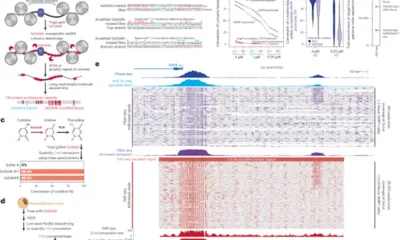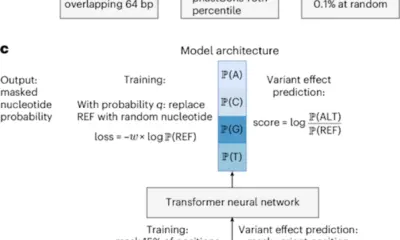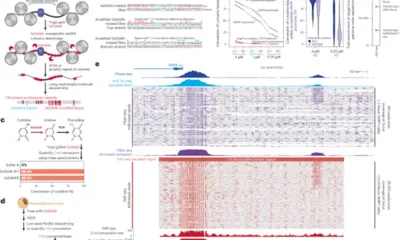Science
Genetic Insights Shape Future Diets Based on DNA Research

Recent developments in genetic research are revealing how our DNA can play a significant role in determining individual dietary needs. This emerging field raises important questions about the influence of various genetic factors such as ancestry, race, and even physical traits like hair and eye color on nutrition.
Reader Ann F recently reached out with a series of inquiries following a column discussing these topics. She asked whether factors such as race, gender, and genetic information could guide individuals toward the most suitable diet. Her questions reflect a growing curiosity about the intersection of genetics and nutrition.
Understanding Genetic Influence on Diet
The concept that our DNA might dictate optimal nutrition is gaining traction among scientists and health professionals. Research indicates that genetic variations can affect how our bodies process different nutrients, which in turn influences our overall health and wellness. For instance, specific genes may determine how effectively one metabolizes carbohydrates or fats, suggesting that a one-size-fits-all approach to dieting may not be ideal.
Moreover, studies have shown that ancestry can provide insights into dietary preferences. Individuals with certain genetic backgrounds may have evolved to thrive on specific diets. For example, populations that historically consumed high levels of dairy may possess a greater tolerance for lactose, while others may face challenges with dairy consumption. This highlights the potential for personalized nutrition based on genetic predispositions.
The Role of Gender and Physical Traits
Gender also plays a role in nutritional needs. Research shows that men and women may require different amounts of certain nutrients based on biological differences. For instance, women generally need more iron due to menstruation, while men may require higher protein to support muscle mass.
Physical traits, such as hair and eye color, while not directly linked to nutrition, can sometimes correlate with ancestry and, consequently, dietary preferences. Individuals with certain traits may belong to populations that have historically thrived on specific diets, suggesting that understanding one’s genetic background could enhance dietary choices.
With the rise of direct-to-consumer genetic testing, individuals can now obtain information about their DNA. Companies like 23andMe and AncestryDNA provide insights into genetic traits that may influence dietary needs. However, the extent of actionable information derived from such tests can vary significantly. While some genetic markers are well-studied, others remain less understood, leaving room for interpretation.
Understanding how to leverage genetic information for dietary choices is still an evolving area of study. Health professionals emphasize the importance of combining genetic insights with traditional nutritional guidelines for a comprehensive approach to health.
As research continues to advance, the potential for personalized nutrition rooted in genetic understanding could transform dietary practices worldwide. As individuals become more informed about their unique genetic makeup, they may be better equipped to make choices that align with their health goals, potentially enhancing overall well-being.
-

 Technology5 months ago
Technology5 months agoDiscover the Top 10 Calorie Counting Apps of 2025
-

 Technology2 weeks ago
Technology2 weeks agoOpenAI to Implement Age Verification for ChatGPT by December 2025
-

 Health3 months ago
Health3 months agoBella Hadid Shares Health Update After Treatment for Lyme Disease
-

 Health3 months ago
Health3 months agoErin Bates Shares Recovery Update Following Sepsis Complications
-

 Health3 months ago
Health3 months agoAnalysts Project Stronger Growth for Apple’s iPhone 17 Lineup
-

 Technology4 months ago
Technology4 months agoDiscover How to Reverse Image Search Using ChatGPT Effortlessly
-

 Technology3 months ago
Technology3 months agoElectric Moto Influencer Surronster Arrested in Tijuana
-

 Technology2 months ago
Technology2 months agoDiscover 2025’s Top GPUs for Exceptional 4K Gaming Performance
-

 Technology5 months ago
Technology5 months agoMeta Initiates $60B AI Data Center Expansion, Starting in Ohio
-

 Technology5 months ago
Technology5 months agoRecovering a Suspended TikTok Account: A Step-by-Step Guide
-

 Health5 months ago
Health5 months agoTested: Rab Firewall Mountain Jacket Survives Harsh Conditions
-

 Lifestyle5 months ago
Lifestyle5 months agoBelton Family Reunites After Daughter Survives Hill Country Floods





















